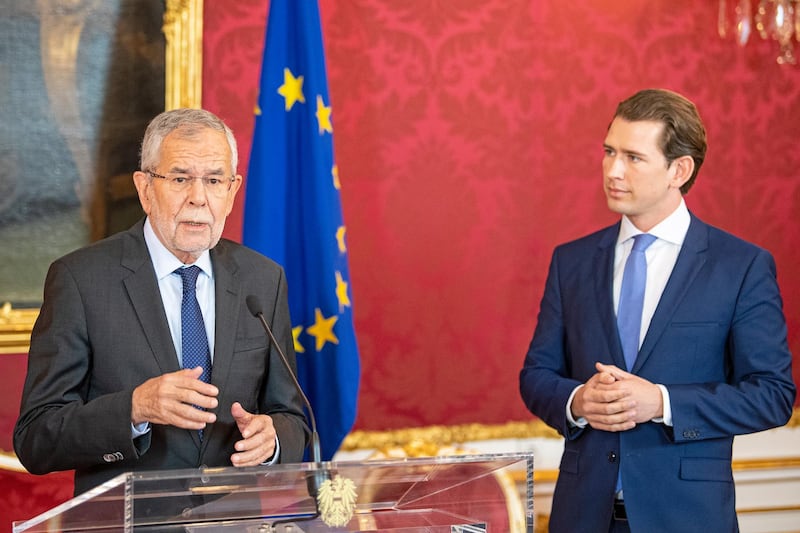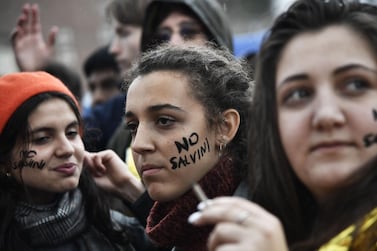Austria is braced for snap elections after Chancellor Sebastian Kurz pulled the plug on his coalition with a far-right party embroiled in what is being called the "Ibiza scandal."
The conservative-nationalist coalition between the Austrian People's Party (OVP) and the far-right Freedom Party (FPO) collapsed after 18 months in office, throwing the country into political chaos only days before the European parliamentary elections.
Alexander Van der Bellen, Austria's president, said September would be the best time for a fresh vote but did not specify how the country would be governed in the interim. Opposition parties have argued that a full investigation of the scandal could only be accomplished if the scandal-tarnished coalition party vacates its post.
The FPO was ousted from the coalition following the emergence of a video that appeared to show the party’s leader, Heinz-Christian Strache, offering lucrative contracts in exchange for campaign support. An unidentified woman purporting to be the niece of a Russian oligarch was told by Mr Strache and parliamentary leader Johann Gudenus how to gain access to artificially inflated state contracts.
The Kremlin on Monday said the scandal had nothing to do with Russia.
The video was filmed two years ago on the Spanish holiday island of Ibiza. Protesters gathered outside Mr Strache's offices to sing the Vengaboy's hit We're Going to Ibiza on Saturday as the scandal broke out, with the song becoming a celebratory tune for the disintegration of Austria's right-wing coalition.
Austrian public broadcaster ORF defined the crisis as the "biggest political upheaval in Austria since 1955", when the country was re-established as a sovereign state after the Second World War.
The FPO was projected to win five of the 18 seats allocated to Austria in the European elections, and it is likely the accusations of bribery will result in a major blow to the party.
Mr Van der Bellen, Austria’s president, scolded the country’s parties on the need to “rebuild trust” with the electorate.
Conservative Chancellor Sebastian Kurz has pledged a full investigation into the affair. Mr Kurz pulled the plug on the coalition and accused the FPO of being unwilling to repudiate behaviour that damaged the country's reputation.
"I am in contact with the president and we share the opinion that all suspicions must be cleared up entirely, some of which may be of criminal relevance, and some of which may not be but which are still morally reprehensible," Mr Kurz.
While Mr Strache has said the meeting never led to any money changing hands and rejected suggestions of influence peddaling. He insisted the only crime that took place was illegally videotaping a private dinner party.
New FPO leader Norbert Hofer promised to set up an investigation into the party's finances while saying Mr Strache's comments were unacceptable.
As talks over the composition of caretaker government dragged on in Vienna, Mr Kurz was tipped to sack the FPO Interior Minister Herbert Kickl, who would be nominally in charge of a state investigation into his erstwhile leader. Germany joined other countries in suspending intelligence sharing with Austria over concerns about Mr Kickl and his ties to Russia.
Mr Kickl has been the most controversial minister in government, not least because during his tenure police raided the offices of the country's main intelligence service, the Federal Office for the Protection of the Constitution and Counterterrorism (BVT), which he oversees.







